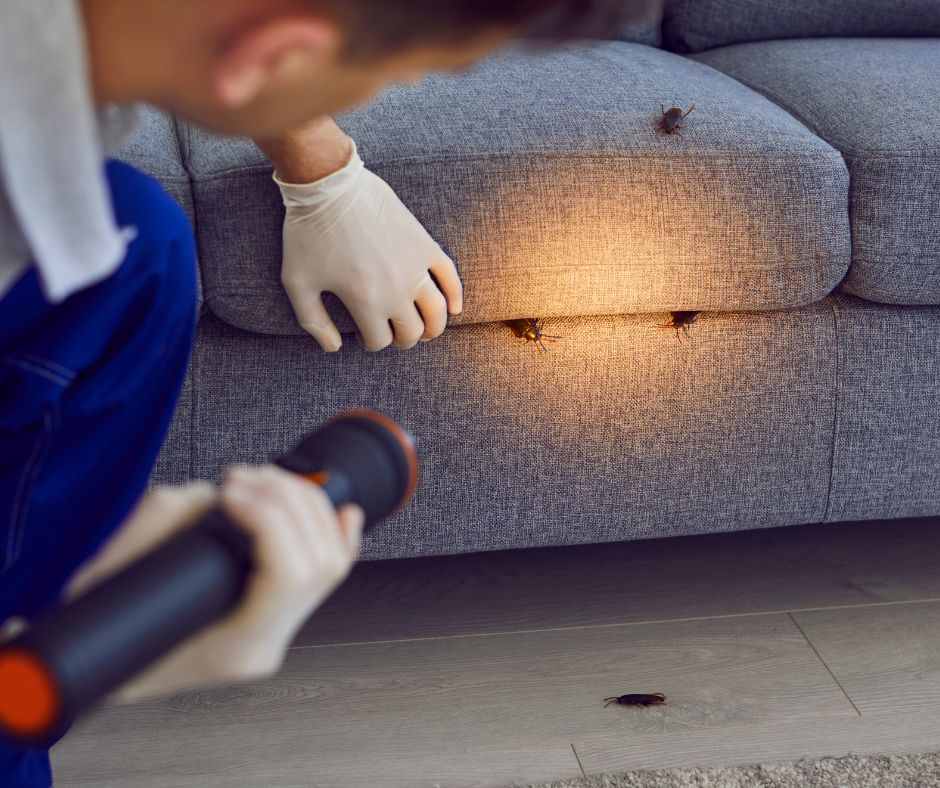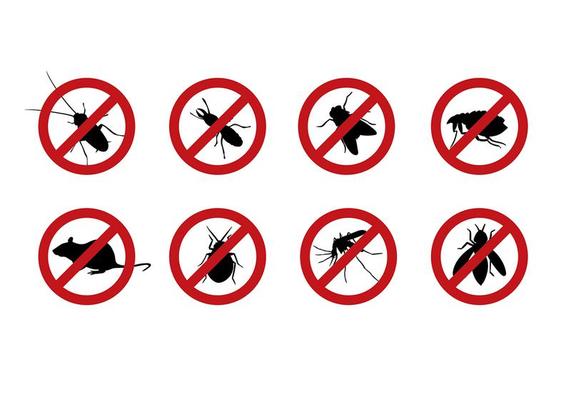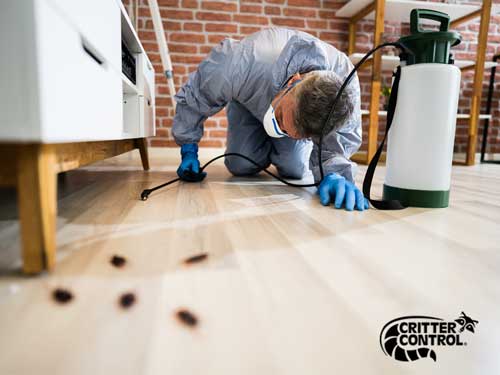Why Pest Control in Charlotte County Is Essential for Your House’s Health
Discover the most recent Breakthroughs in Insect Control and Exactly How to Apply Effective Treatment Solutions
In recent years, the area of parasite control has actually experienced considerable improvements, driven by the need for reliable and sustainable therapy options. Ingenious methods such as Integrated Insect Monitoring (IPM) incorporate green methods with advanced innovation, enhancing both efficiency and environmental obligation.
Eco-Friendly Pest Control Options
In the last few years, the demand for environment-friendly parasite control options has surged as services and property owners alike look for sustainable options to typical chemical therapies. This shift is driven by expanding ecological understanding and a wish to minimize the health risks connected with synthetic chemicals.

Environmentally friendly pest control methods incorporate a series of approaches that focus on the usage of natural compounds and practices. Integrated Bug Administration (IPM) is one such technique, integrating biological, social, and mechanical techniques to manage parasite populations while decreasing dependence on chemicals (Wildlife removal services). This alternative method highlights avoidance with habitat adjustment and the intro of all-natural killers, consequently cultivating a balanced environment
One more prominent choice is using organic pesticides stemmed from plants, which often tend to be much less dangerous to non-target microorganisms. Products like neem oil and diatomaceous planet have acquired traction for their efficiency in regulating parasites while posturing marginal risks to human wellness and the environment.
Furthermore, exemption strategies, such as securing access factors and preserving cleanliness, play an essential function in environmentally friendly parasite management. By adopting these sustainable methods, people and businesses can effectively manage parasites while promoting a much healthier earth for future generations.
Smart Technology in Bug Monitoring
Development is improving the landscape of parasite management, with smart innovation arising as a crucial pressure in boosting performance and performance - Wildlife removal services. The assimilation of Net of Points (IoT) tools, expert system (AI), and information analytics is reinventing just how parasite control specialists approach problems
Smart catches equipped with sensors can spot pest activity in real-time, sending prompt informs to drivers. This permits prompt feedbacks, reducing damages and decreasing the demand for substantial therapies. Furthermore, AI formulas evaluate historical data to anticipate parasite actions, allowing positive interventions based upon ecological problems and invasion patterns.
Drones and computerized cars are additionally playing a substantial role in insect administration, supplying airborne evaluations of huge locations, recognizing hotspots, and also distributing targeted therapies. These modern technologies not just simplify procedures but additionally improve safety by limiting human direct exposure to possibly hazardous chemicals.
Moreover, mobile applications encourage consumers to monitor bug activity and accessibility professional suggestions, cultivating a collective approach to pest administration. Generally, the adoption of wise modern technology is establishing a new criterion in pest control, highlighting data-driven choices and sustainable techniques that eventually benefit both professionals and home owners alike.
Integrated Parasite Management Methods
Integrated Parasite Management (IPM) uses a holistic technique to pest control, combining different techniques to efficiently handle insect populaces while minimizing dangers to human health and the setting. IPM revolves around comprehending the pest life cycle, their natural adversaries, and the community in which they grow.
One of the fundamental components of IPM is keeping track of pest populaces with regular examinations and information collection. This enables the recognition of pest limits, establishing when intervention is needed. Cultural techniques, such as plant hygiene, turning, and habitat control, are important in decreasing insect occurrence and advertising plant wellness.
Mechanical controls, consisting of obstacles and catches, are also vital in IPM. These approaches can physically eliminate or discourage pests without making use of chemicals. When necessary, the wise application of chemical controls is used, concentrating on targeted treatments that decrease ecological effect.
Education and collaboration amongst stakeholders, consisting of farmers, bug control specialists, and the area, are crucial for the successful application of IPM methods. By prioritizing sustainable practices, IPM not only addresses pest issues but also promotes a healthier ecosystem.
Biological Control Methods
Countless biological control approaches are increasingly recognized for their efficiency in taking care of bug populations while advertising ecological equilibrium. These strategies harness all-natural predators, bloodsuckers, and pathogens to minimize pest numbers without relying upon artificial chemicals. As an example, the introduction of ladybugs can effectively regulate aphid populations, while nematodes target soil-dwelling pest larvae.
Furthermore, making use of microbial chemicals, such as Bacillus thuringiensis (Bt), gives an eco-friendly option for handling caterpillar insects. These products especially target pest types, decreasing damage to useful insects and pollinators. Moreover, pest management company conservation organic control stresses enhancing environments for natural opponents, such as birds and useful insects, consequently encouraging their visibility in farming systems.
Study continues to disclose ingenious strategies within this area, such as the use of scents to interrupt pest breeding patterns or the growth of biocontrol representatives via genetic modification. Implementing these methods can lead to sustainable insect administration techniques that minimize the reliance on chemical interventions, ultimately cultivating much healthier ecological communities. As understanding of these methods grows, they are ending up being essential elements of integrated insect monitoring (IPM) methods, providing a balance in between efficient pest control and ecological stewardship.
Do It Yourself Parasite Control Solutions
As homeowners look for efficient methods to tackle pest concerns, do it yourself insect control services have actually obtained appeal for their accessibility and cost-effectiveness. These methods empower people to original site deal with problems making use of easily available materials and techniques, usually without the demand for specialist intervention.

Furthermore, maintaining correct hygiene and routine evaluations can avoid pest entry and nesting (Wildlife removal services). Straightforward practices, such as sealing splits, getting rid of food resources, and decluttering, can dramatically lessen parasite populations. Traps, both homemade and readily readily available, can likewise provide reliable options for monitoring and controlling details insects like bugs or rodents

Verdict
The combination of environment-friendly insect control alternatives, wise technology, and cutting-edge management methods offers a comprehensive technique to reliable pest administration. By welcoming Integrated Parasite Management (IPM) and using organic control approaches, alongside DIY remedies, sustainable and accountable insect control can be attained.
Environmentally friendly parasite control methods incorporate a variety of approaches that prioritize the usage of all-natural substances and practices. Integrated Insect Administration (IPM) is one such technique, incorporating organic, social, and mechanical tactics to manage insect populations while decreasing reliance on chemicals. As understanding of these methods grows, they are ending up being indispensable Continued components of incorporated insect monitoring (IPM) approaches, providing an equilibrium between effective parasite control and ecological stewardship.
The integration of eco-friendly insect control alternatives, smart technology, and innovative administration methods offers a comprehensive strategy to reliable bug monitoring. By welcoming Integrated Parasite Monitoring (IPM) and using biological control methods, together with DIY services, accountable and sustainable insect control can be achieved.